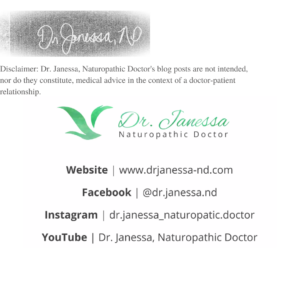With Valentine’s day coming up, what does the research say in regards to chocolate and its impact on your health?
ND INSIGHT
Systematic Reviews: Comparing highest chocolate consumers to those who ate little to no chocolate
- Based on the research, presented below, there’s a small reduction in cardiovascular disease, heart attack/angina, and stroke from the six systematic reviews studied. There were flaws with these studies e.g. the participants weren’t randomized, and there wasn’t optimal adjustment for the fact that the chocolate eaters were generally younger and healthier.
- Another interesting note, is that it wasn’t clear if the chocolate being studied was milk chocolate or dark chocolate; however, it’s possible that about 90% of the chocolate studied was milk chocolate!
What’s the significance?
Dark Chocolate v.s. Milk Chocolate
- There is more cocoa (from Theobroma cacao) in dark chocolate v.s. milk chocolate. Cocoa contains flavanols, a subclass of flavonoids, which are polyphenol phytochemicals! Flavanols, are proposed to possess health benefits. Botanical medicine considers flavanols to be amazing antioxidants, and to also possess anticancer and anti-inflammatory qualities too. So, I wonder what the results would look like if they strictly looked at dark chocolate? One can only speculate.
Cardiovascular Risk Factors
- In regards to the cardiovascular risk factors of blood pressure and LDL reduction (bad cholesterol), the research does show a statistically significant reduction, however, it’s very minor clinically speaking.
Acne
- If you’re prone to acne, chocolate may not be for you! As an ND, I can see the larger context possibly at play here. It may not be so much the chocolate, or cocoa, that’s truly the issue, but instead the included ingredient of dairy. Dairy is problematic, and a food sensitivity for many. Even as an added ingredient, food sensitivities can cause acne, other skin disturbances such as eczema and psoriasis, digestive issues, joint pain, and mood changes, to name a few. The effects of a food sensitivity can be wide spread.
ND Insight: Wrap-up
The research does not support drastic improvements to cardiovascular health, and there were notable limitations, which should be recognized, and drawbacks to the research. A larger abundance of research specifically pertaining to dark chocolate (70% or greater) would be interesting to see!
So, unless you’re prone to acne, or more specifically, unless chocolate is a problematic food for you (allergy or sensitivity), for now, the research suggest that the general adult population can rest easy and mindfully enjoy that piece of chocolate, as a treat in moderation, knowing that it’s a win for your cardiovascular health!
THE FACTS:
Systematic Reviews: Comparing highest chocolate consumers to those who ate little to no chocolate
There are six systematic reviews (large studies that pool results from other studies already published), each with 5-9 observational studies, and 75, 408-157, 809 adult participants. These studies looked at chocolate consumption and cardiovascular disease, heart attack/angina, stroke, and heart failure. They followed the participants over time, 8-16 years, and compared those consuming the highest amounts of chocolate to those eating little to no chocolate.
So, what did they find?
- The relative risk for cardiovascular disease was 37% less in the highest chocolate group compared to the little to no chocolate group.
- The relative risk for heart attack and angina was 10% less in the highest chocolate group compared to the little to no chocolate group.
- The relative risk for stroke was 19% less in the highest chocolate group compared to the little to no chocolate group.
- The relative risk for heart failure (admission or death) was 19% less in the highest chocolate group compared to the little to no chocolate group; however, this was not statistically significant finding.
Cardiovascular Risk Factors
- Blood Pressure: Across 3 systematic reviews
- Statistically significant reduction in blood pressure
- Systolic BP 2.8-4.5mmHg
- Diastolic BP 2.0-2.7mmHg
- Statistically significant LDL reduction (bad cholesterol): 0.15mmol/L
- Statistically significant reduction in blood pressure
Acne
- Two randomized controlled trials: increase in 4-5 lesions (pimples), 2-3 days after chocolate ingestion
REFERENCES:
- Allan, G.M. & Zupancic M. A. Chocolate: Can anything this tasty be good for us? (November 21, 2016 ed., Tools for Practice, Publication).
- Gowan, M. CCNM Notes from BOT101: Introduction to Botanical Medicine and Pharmacognosy.


